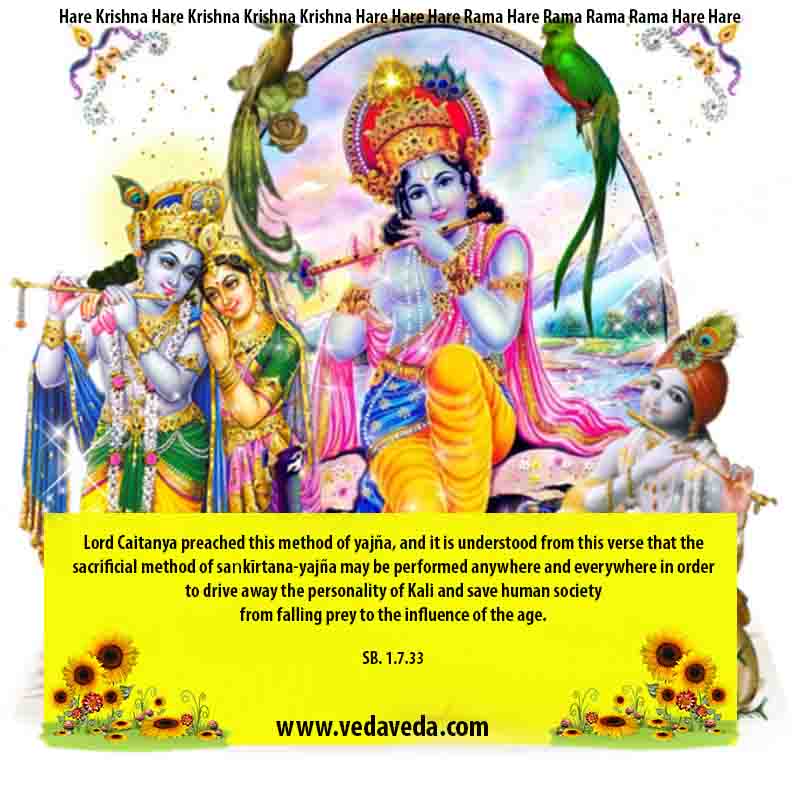
TRANSLATION
Therefore, O friend of irreligion, you do not deserve to remain in a place where experts perform sacrifices according to truth and religious principles for the satisfaction of the Supreme Personality of Godhead.
PURPORT
Yajñeśvara, or the Supreme Personality of Godhead, is the beneficiary of all kinds of sacrificial ceremonies. Such sacrificial ceremonies are prescribed differently in the scriptures for different ages. In other words, sacrifice means to accept the supremacy of the Lord and thereby perform acts by which the Lord may be satisfied in all respects. The atheists do not believe in the existence of God, and they do not perform any sacrifice for the satisfaction of the Lord. Any place or country where the supremacy of the Lord is accepted and thus sacrifice is performed is called brahmāvarta. There are different countries in different parts of the world, and each and every country may have different types of sacrifice to please the Supreme Lord, but the central point in pleasing Him is ascertained in the Bhāgavatam, and it is truthfulness. The basic principle of religion is truthfulness, and the ultimate goal of all religions is to satisfy the Lord. In this age of Kali, the greatest common formula of sacrifice is the saṅkīrtana-yajña. That is the opinion of the experts who know how to propagate the process of yajña. Lord Caitanya preached this method of yajña, and it is understood from this verse that the sacrificial method of saṅkīrtana-yajña may be performed anywhere and everywhere in order to drive away the personality of Kali and save human society from falling prey to the influence of the age.

